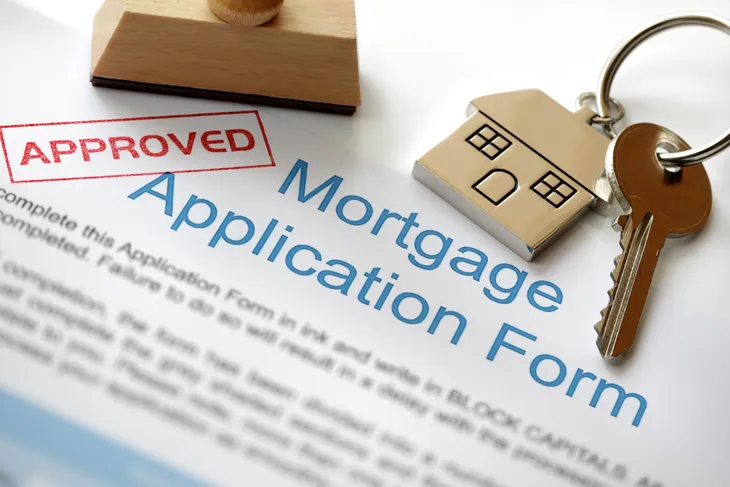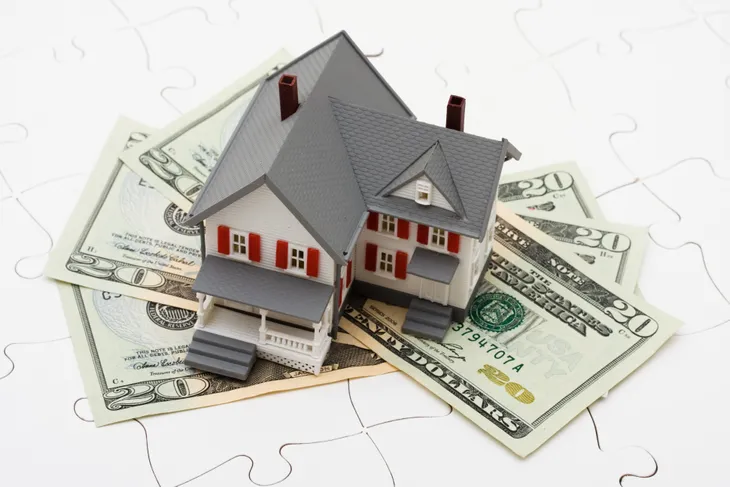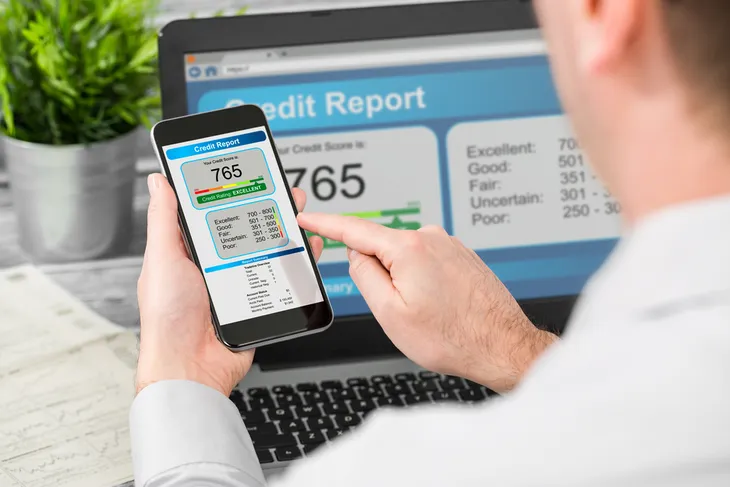With record low interest rates and a once in a lifetime (hopefully!) pandemic forcing so many to stay home, the past year was the perfect time to become a homeowner for the first time. Or just to move into a new house. Now though, home prices are sky high and the market is red hot in almost every location. Home-buying isn’t exactly what it used to be. If you are still on the hunt to find your dream home, here are several things you should think about before you start touring open houses. Even if you’ve bought numerous homes in the past, the current market (and its new variables) may be a whole new ballgame for you. Ask yourself the following questions about your plans to buy a house before you take the plunge. So, should you buy a house in this market?
11. How Stable Is Your Life Right Now?
If you speak to a realtor, they will always tell you it’s a great time to buy. That’s their job, after all. They will tell you that a house is a great investment and that prices always go up. While it’s true that plenty of people make money by moving from house-to-house, buying a home isn’t a guaranteed investment.
Ultimately, you should buy a house because you want to live in it — for at least five or more years. When you are considering buying a house, double check that it’s something that will fit your life for the next half decade or so. That doesn’t just mean having space for you and your family. It also means that you plan to be in a good place financially too, in order to keep up with the mortgage payments.
Obviously, life always has a way of throwing you curveballs. However, as long as you have a reasonable expectation that your job, family, and community will basically stay the same, then buying a house is a good way to take care of your housing needs. If not, keep renting until you know you can stay put for a while.
10. Can You Afford a Home?
This may seem like a no-brainer question. However, it often trips up even the most savvy buyers. In addition to the down payment, closing costs, realtor fees, and the monthly mortgage payments, there’s a score of other expenses you’ll need to budget for. There’s general maintenance, insurance, property tax, and a long list of other costs that you probably didn’t need to worry about as a renter.
While you may calculate that your monthly payment will be similar to what you’re paying in rent, that doesn’t account for all the extra costs of home ownership. If you would only be able to scrap by and meet your mortgage payment, you’re probably actually over-budget. Look for something in a lower price range or save up a larger down payment before you buy.
9. Where Do You Want to Buy?
We all know that location, location, location drives real estate sales. However, it’s important to pay close attention to the neighborhood you are thinking of joining. In a hot market, most neighborhoods will have bidding wars and rapid price appreciation. However, only strong neighborhoods (with good schools and homeowners with solid finances) can weather market downturns and hold onto their property values.
You want to live in those locations, if you can. After all, even if you don’t care about house prices once you move in, you certainly don’t want to live in a neighborhood where everybody around you has foreclosed and vacated their property. This comes back to the original reason why you are buying the house. If you’re buying a home to live in, then you’ll likely be looking at neighborhoods that are desirable. On the other hand, if you’re trying to scoop up a cheap house as an investment, you might find that the neighborhood never completely recovers during the next downturn.
8. Do You Have To Sell Your Existing House?
For some individuals, a job or major life change can force you to move. But if you’re just looking to move into a new home just because the prices are tempting, think twice. While your existing house may have increased in value a ton since you bought, so has almost every other house too. And you still need a place to live. You will quickly go from benefiting by being a seller in a hot market to being a buyer in the same sellers’ market.
Unless you’re seriously downsizing for some reason, you may not end up any further ahead in terms of house size or cash savings. You could even end up on the losing end of this equation.
You may not get a bidding war on your current property, but that also means you won’t have to fight to buy your next home. My friend learned this the hard way. She was jumping up and down after she sold her home for $50,000 more than she thought she would get. However, she still hasn’t been able to buy a replacement. She keeps getting outbid. She’s already upped her budget by $100,000 in an attempt to compete with cash buyers. That’s not the only thing she’s losing, either. She’s constantly stressed and arguing with her husband about interest rates and price predictions and market indicators. She’s losing her mind too!
7. Does The Home Work For You Long-Term?
Circumstances change all the time. There’s really no such thing as a “forever home.” Still, you don’t want to buy a home in a hot market just to tide you over until you find the “dream home.” If you’re young and planning on expanding you family, think ahead. Look for homes that enough room to accommodate your short-term future plans.
Likewise, there’s no point buying a huge home if you are close to retirement and planning to downsize. Even if you somehow hit the jackpot with timing, you are really just paying all your gains towards realtor commissions and moving costs? Impulse buys are almost always a mistake, and that’s especially true when it comes to houses.
6. Can You Qualify For a Mortgage?
Mortgage rates are at historic lows right now. However, that doesn’t mean that the mortgage qualification standards have gotten looser to accommodate more borrowers. In fact, as house prices go up (and mortgage amounts are therefore larger), most lenders have tightened up their borrowing requirements. That means you’ll have to meet additional financial hurdles, in addition to having a hefty down payment.
If you are thinking about buying a house without first spending some time figuring out if you could qualify for a loan, you’re putting the card before the horse.
 Shutterstock
Shutterstock5. What Does It Take to Get a Mortgage?
Getting a mortgage isn’t supposed to be easy. After all, a lender is entrusting you with a large amount of their money and expecting you to pay it back over a few decades. When you a buy a home, the lender puts up the money and assumes a great deal of the risk.
Before taking a chance on you, lenders need to know that you’re likely to repay the loan (plus interest, of course). Use these metrics to help you figure out whether you are likely to qualify.
 Shutterstock
Shutterstock4. Credit Score
One of the most important factors for your mortgage application in your credit score. If you want to buy a home, you’re going to need a good credit score. The bare minimum score is 580, but most lenders want to see a score of at least 620 in order to truly consider you for a mortgage.
If you want the best terms, you will need an even higher score. For the best mortgage terms, you need at least a 720 or 740. Some even want to see scores in the 800s. If you don’t have good credit, you will pay more in interest. On a big loan like a mortgage, that could translate in paying (tens of) thousands of dollars more over the lifetime of the loan.
3. Down Payment
Almost every mortgage requires a down payment. Even if you are seeking out an FHA Loan, you down payment will be smaller- but still required. If you’re seeking a traditional mortgage, you might need at least 20% down in order to qualify. With the average house price in the USA creeping up to around $300,000 (and much more in major cities), you could need $60,000+ in cash just to get started. While some lenders are starting to offer loans with lower down payments (or even 0% down), they are few and far between.
In fact, I would caution you to think twice before buying a house with 0% down. I know it’s tempting to save on the down payment. Whether you use the extra funds to supplement your mortgage payments or invest in the booming stock market, be careful. The good times never last forever. There will always be another downturn down the road. Putting more down payment into your house can be a way to lower your risk. Regardless, make sure you diversify your investments (including you home).
2. Income
Your income will also be checked. You need to show the lender that you can afford to make the payments. Not only is your income verified, but lenders also want to see if your income is sufficient to handle all of the other obligations you might have. They want to know about your car payments, student loan payments, credit card balances, or even child support obligations. All these numbers come together to form your debt-to-income ratio.
Let’s say you have a monthly income of $4,500. Your debt payments (before the mortgage) total $800 per month. That makes your debt-to-income ratio is 17.78% (800/4500). Your debt will also be figured, relative to your income, along with the proposed mortgage payment. So, if your mortgage will be $1,200 a month, your total debt payment would be $2,000, and your debt-to-income ratio 44.44%.
Some lenders like to see what is called a 28/36 qualifying ratio for the best terms. This means that your debt shouldn’t be more than 28% of your monthly income and your debt plus the mortgage payment shouldn’t be more than 36%. In our example, the buyer meets the first part of the test, but not the second. The mortgage might be a little too much for this borrower to handle.
1. You May Be Able to Qualify With Other Assets
Some lenders may be able to qualify you for a loan, even if you don’t have sufficient supporting income. You will have to specifically inform them, though, that you are trying to qualify based on your assets instead of just your income. Some lenders will be able to take your taxable assets or even your retirement assets into account.
Exact rules vary from lender to lender, partly because some lenders actually re-sell the mortgages to someone else. However, the gist of it is that they will add all your assets up by taking your taxable account and discounting retirement accounts and dividing them by roughly two thirds to account for taxes. They will then divide that sum by the number of months on the loan and use that number as your monthly income.
No matter how you plan to qualify, you need to show that you can handle your mortgage payment. Lenders want to be confident that you are a good risk if you want the best terms — or even just an approval.
 Shutterstock
ShutterstockThe Bottom Line
For many years, buying a home seemed more like a rite of passage (or a path to riches) than just a decision about where you actually want to live. That type of thinking helped to create the bursting of the gigantic housing bubble in the Great Recession. It’s been more than a decade since that disaster, but it seems like people have short memories. Housing prices are out of control in a lot of areas of the country, potentially leading to another bubble.
So should you buy a house in this market? Like all things financial, your unique personal situation will depend on a number of different factors. Your credit score, income level, debt obligations, and savings will all play a part in determining whether you should buy now or wait for the market to cool down. (It is going to cool down eventually, right?) It definitely makes sense to think long and hard over the decision to buy a house. Even with new listings being sold almost instantly, every day. Don’t let FOMO trick you into a financial commitment that you can’t truly afford. You may end up regretting it.
 Shutterstock
Shutterstock










